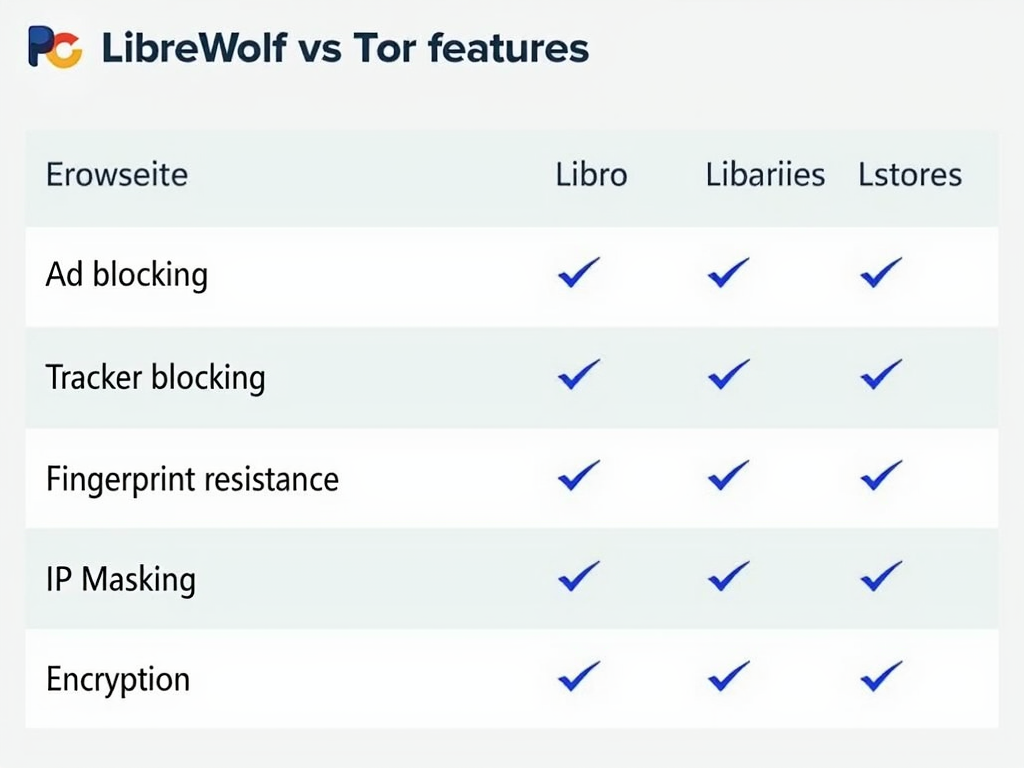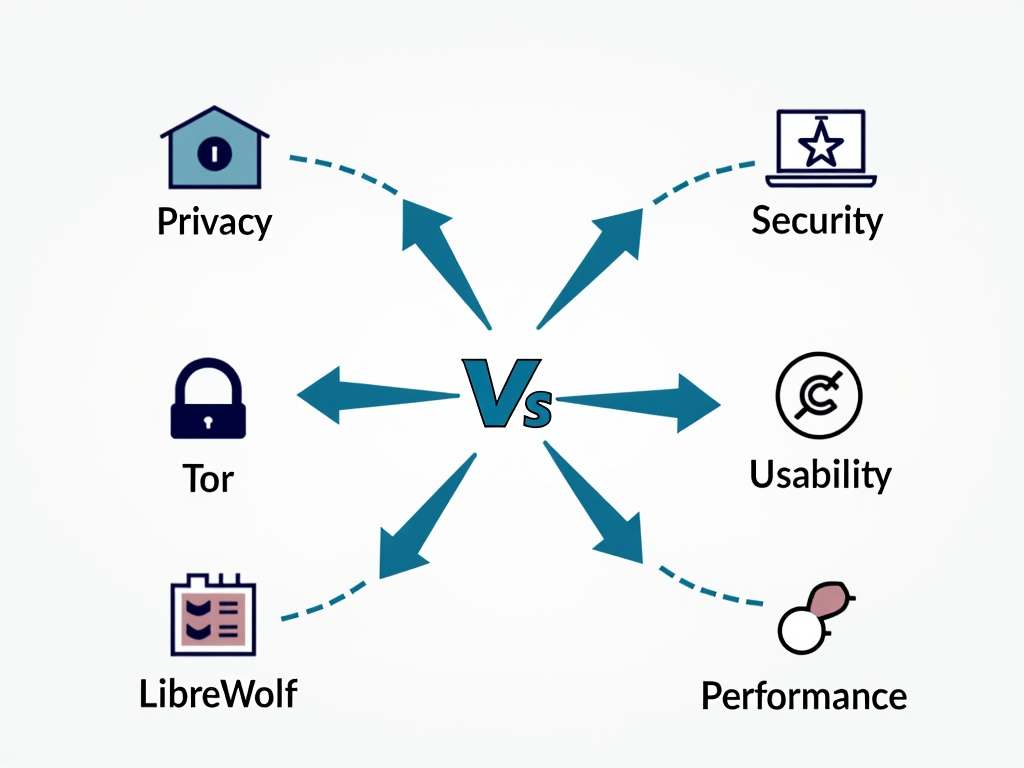LibreWolf Browser Review: Is It Better Than Tor for Online Privacy?
Online privacy matters more than ever today. With trackers and data collectors all over the web, picking the right browser can protect your personal info. Two solid options stand out: LibreWolf and Tor. This article dives into a Review of LibreWolf browser: is it better than Tor? We’ll explore their features and help you choose the best one for your needs.

What Is LibreWolf?
LibreWolf is a browser built from Mozilla Firefox, but with a twist—it’s all about privacy. It strips away Firefox’s data-collecting features, like telemetry, that send info back to Mozilla. Instead, it packs in tools like uBlock Origin to block ads and trackers, and Decentraleyes to stop sites from following you through content networks. It also tweaks settings to make it harder for websites to figure out who you are. Curious? Check out the LibreWolf FAQ for the full scoop.

LibreWolf shines for everyday use. It’s fast, looks familiar if you’ve used Firefox, and keeps your browsing private without much setup. You won’t notice ads or pop-ups, and sites can’t easily track your habits. It’s a simple way to boost your online privacy without changing how you browse.
What Is Tor?
Tor, or The Onion Router, takes a different approach. It’s a browser designed to hide who you are online. Your traffic bounces through a network of volunteer-run servers—called nodes—around the world. Each node adds a layer of protection, like peeling an onion, making it tough for anyone to track you. People like journalists and activists use it to stay safe or get around censorship. Want more details? The Tor Project site explains its history and setup.

Tor’s strength is anonymity. It’s perfect if you need to hide your location or identity—like if you’re in a place with heavy internet restrictions. But it’s not always smooth. The extra steps can slow things down, and some sites block Tor users, which can be a hassle.
Comparing LibreWolf and Tor
Let’s break down how these two stack up on privacy, security, usability, and speed. Both are top online privacy tools, but they’re built for different goals. Here’s what I found after testing them out.
Privacy Features
LibreWolf stops websites from tracking you. It blocks ads, trackers, and sneaky scripts that try to learn your habits. It also fights fingerprinting—where sites identify you based on your browser setup. Tor hides your identity by masking your IP address and scrambling your traffic through its network. LibreWolf keeps sites in the dark about your data; Tor keeps everyone in the dark about who you are. A Princeton study shows how fingerprinting tracks most users—LibreWolf helps dodge that.

Security
Both browsers start with Firefox’s strong base, getting regular updates to fix weak spots. LibreWolf sticks close to Firefox’s security but adds privacy tweaks. Tor builds on Firefox too, but its node system adds extra protection against some attacks. There’s a catch, though—unencrypted traffic leaving Tor’s last node could be snooped on. Neither is perfect, but both are solid if you browse smart.

Usability
LibreWolf feels like Firefox with a privacy boost—easy to use right away. You can tweak settings if you want, but it works great out of the box. Tor takes more effort. The slower speeds and occasional site blocks mean it’s not as simple for daily browsing. If you’re new to privacy tools, LibreWolf is less of a learning curve.

Performance
LibreWolf runs fast, just like Firefox. Pages load quickly, and it handles videos or downloads without a hitch. Tor lags behind because of its node-hopping. It’s fine for basic browsing, but streaming or big files? Not so much. If speed matters to you, LibreWolf wins hands down.

My Experience With Both
I’ve used LibreWolf and Tor for a while now, and they each have their moments. LibreWolf is my daily driver. It’s quick, blocks annoying ads, and I feel good knowing my data stays mine. Once, I shopped online and didn’t see those creepy follow-up ads—LibreWolf did its job. Tor’s my go-to when I need to dig into something sensitive, like researching in a restricted region. It’s slower, sure, but that anonymity feels worth it. For most people, LibreWolf hits the sweet spot.

Which Should You Choose?
So, Review of LibreWolf browser: is it better than Tor? It depends. LibreWolf is great for fast, private browsing every day. Tor is the champ for staying hidden, even if it’s slower. I’d pick LibreWolf for regular use and Tor for special cases. You can even use both—privacy doesn’t have to be one-size-fits-all. The EFF’s privacy guide backs up mixing tools like these for better control.
